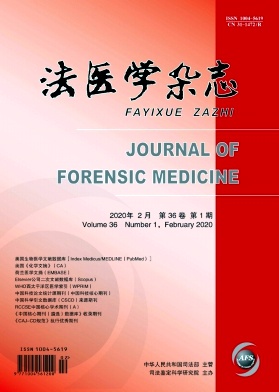Prognostic Significance Association of Neutrophil-To- Lymphocyte Ratio and Platelets-To-Lymphocyte Ratio with Mortality in COVID19 Patients
引用次数: 0
Abstract
Background: Inflammation is a key factor in COVID-19 progression and is potentially an importantpredictive factor. The ratios of neutrophils to lymphocytes and platelets to lymphocytes may showsignificant inflammatory progression, which may contribute to the development of some majorcomplications and mortality problems as observed in COVID-19. Objective: To examine and investigatethe correlation of neutrophil lymphocytic ratio (NLR) and platelets to lymphocytes ratio (PLR) withincreased mortality risk.Methods: 124 patients admitted to King Abdulaziz hospital with confirmed COVID-19 were enrolled inour study. The blood cell count was used to obtain NLR and PLR. The receiver operating characteristic(ROC) curve was used to determine the sensitivity and specificity of NLR and PLR for severity andmortality of admitted patients with COVID-19. The logistic regression model was used to explore therisk factors associated with mortality and severity.Results: The mortality rate was 23.4%. Among non-survivors’ patients’ lymphocyte significantlydeclined with 96.5%, while neutrophil counts increased. The Empirical optimal cut point of NLRcorrelated with mortality is 4.647, with a sensitivity of 93% and a specificity of 61% (AUC: 0.847, 95%CI 0.774-0.921; P = 0.001). Moreover, the optimal cut point of PLR associated mortality is 17.358,with a sensitivity of 90% and a specificity of 64% (AUC: 0.791, 95% CI 0.703-0.878; P = 0.005).Conclusions: NLR and PLR variables were significantly correlated with severity and mortality. NLRand PLR can be considered independent biomarkers in COVID-19 patients which play a significant roleto predict mortality cases.中性粒细胞与淋巴细胞比值、血小板与淋巴细胞比值与covid - 19患者死亡率的预后意义
背景:炎症是COVID-19进展的关键因素,也是潜在的重要预测因素。中性粒细胞与淋巴细胞和血小板与淋巴细胞的比例可能显示出明显的炎症进展,这可能导致一些主要并发症的发生和COVID-19中观察到的死亡率问题。目的:探讨中性粒细胞淋巴细胞比(NLR)和血小板淋巴细胞比(PLR)与死亡风险增加的相关性。方法:选取124例在阿卜杜勒阿齐兹国王医院确诊的COVID-19患者作为研究对象。用血细胞计数计算NLR和PLR。采用受试者工作特征(ROC)曲线确定NLR和PLR对入院患者COVID-19严重程度和死亡率的敏感性和特异性。采用logistic回归模型探讨与死亡率和严重程度相关的危险因素。结果:死亡率为23.4%。在非幸存者患者中,淋巴细胞明显下降,为96.5%,而中性粒细胞计数增加。nlr与死亡率相关的经验最佳切点为4.647,敏感性为93%,特异性为61% (AUC: 0.847, 95%CI 0.774 ~ 0.921;P = 0.001)。此外,PLR相关死亡率的最佳切点为17.358,敏感性为90%,特异性为64% (AUC: 0.791, 95% CI 0.703-0.878;P = 0.005)。结论:NLR和PLR变量与严重程度和死亡率显著相关。nlr和PLR可被认为是COVID-19患者的独立生物标志物,在预测死亡率病例中发挥重要作用。
本文章由计算机程序翻译,如有差异,请以英文原文为准。
求助全文
约1分钟内获得全文
求助全文

 求助内容:
求助内容: 应助结果提醒方式:
应助结果提醒方式:


